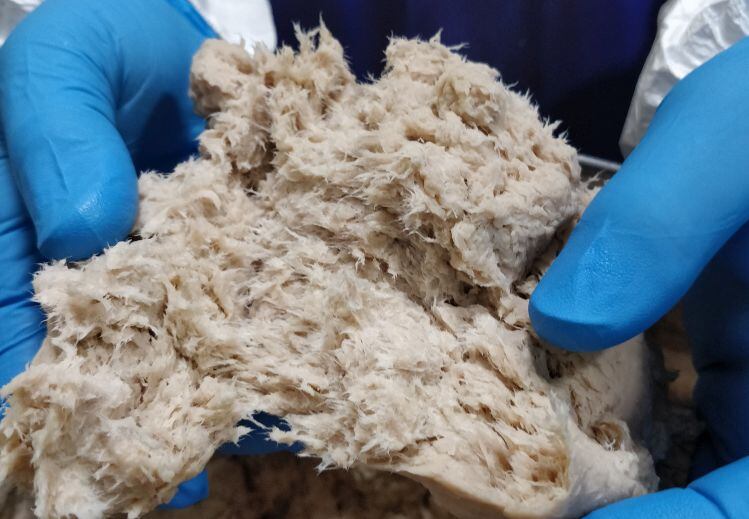Speaking to FoodNavigator-USA after Colorado-based Meati Foods started processing its first orders through meati.com, CEO Dr Tyler Huggins said Tassani’s goal was lofty, but did not amount to a tech-fueled fantasy: “My co-founder and I were asking Scott, hey, is this too aggressive? Does it seem a little crazy? And he didn’t flinch, and said ‘I will sell every pound that you produce.’”
While no new hire is going to tell you he can’t sell your product, Tassani’s confidence is based on conversations with potential partners, stressed Huggins, who claims Meati is carving out new territory in the category with minimally-processed, whole food, whole cut, products offering protein quality on a par with animal products (PDCAAS score: 1) that blow rivals out of the water from a sensory, nutritional, and sustainability perspective.
“We only opened this to email subscribers, without any marketing, and we sold over 1,100 cutlets within an hour, and sold out all of our product within 24 hours. We talked to retailers and foodservice companies and every single person we talk to wants it, so actually a $1bn run rate in 2025 may even be conservative.”
Plant-based meat: ‘The current offerings don’t deliver, it’s just a sea of sameness’
But isn’t growth in retail sales of refrigerated plant-based meat in particular slowing down, prompting some commentators to wonder if the meat alternative bubble is about to burst?
“What we get [from retail and foodservice buyers] is that they love the category, they know consumers want more sustainable, ethical products, but the current offerings don’t deliver, it’s just a sea of sameness,” said Huggins. “Meati checks all the boxes, it’s nutritious, it’s sustainable, and it’s a whole food, it’s not processed [ingredients list Meati cutlets: Mycelium, salt, flavor, acacia gum].”
Then the conversation turns to positioning and merchandising Meati products - which are from a third kingdom of fungi, so not plant-based or animal-based - to bring growth and excitement to the whole meat alternatives category, he said. “And that's what Scott brings [to the table]. It’s not just about getting shelf space, it's about getting the right shelf space, with the right education, and the right signage."
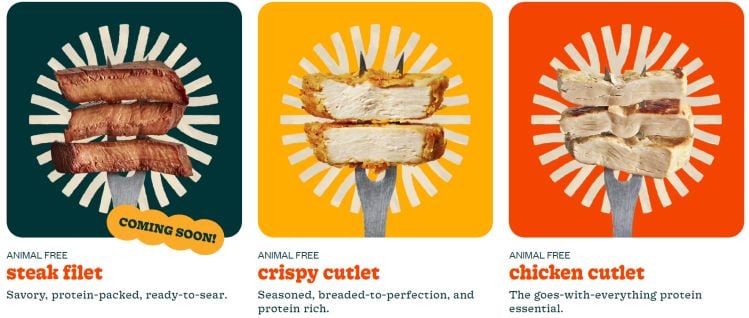
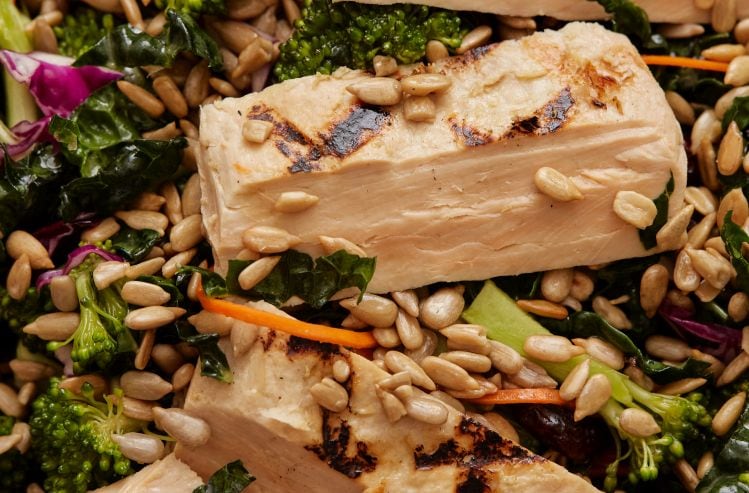
‘I don't want to be in the plant-based category the way it is today... It's kind of a mess’
He added: “I don't want to be in the plant-based category the way it is today. It's kind of a mess. There's not a lot of signage when it needs to be a destination.
“There were some great examples of best practices with new products being rolled out with end caps, but I think some retailers are just kind of giving up and putting products [that were designed for dedicated refrigerated alt meat sets] in the frozen aisle, and that's not where we want to be.
“Fresh is premium real estate, and we have a premium product.”
The products currently being offered via its website are being sourced from Meati’s small-scale facility in Boulder, but its almost-100,000sq ft t ‘Urban Ranch’ production facility - which will have the capacity to produce millions of pounds of 'meat' - will come online in the second half of 2022, he said.
“We’ve got enough capacity in our current facility to support regional launches with food service and to dabble a little in retail as well. And then the mega-ranch will be up and running in the second half. We're going to ramp extremely fast.”
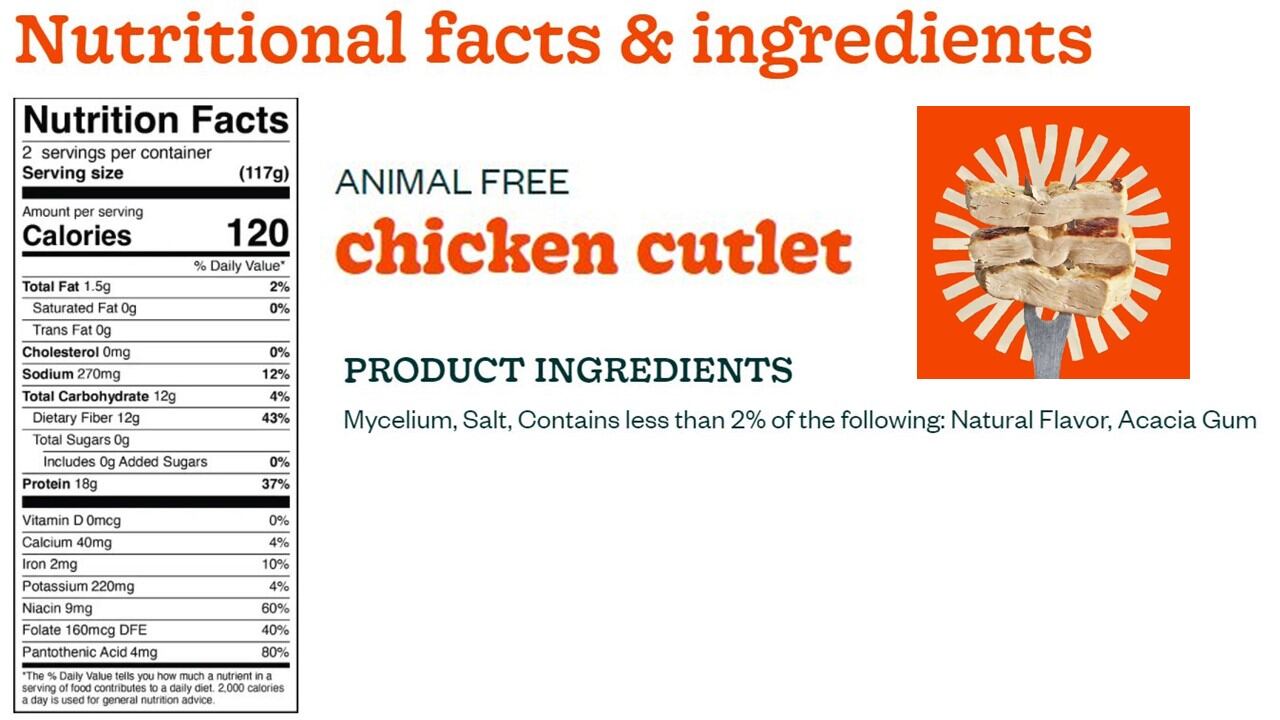
Whole food, minimally processed, PDCAAS score 1
Unlike most players in the category, who use extruded soy, pea, fava bean or wheat protein isolates or concentrates, Meati Foods is seeking to stand out in a market dominated by processed burgers and nuggets, by using a naturally occurring, Non-GMO strain of mycelium, the filamentous-like root structures of mushrooms (although the strain Meati is using doesn’t have a mushroom ‘cap’) that can be tuned to create fibrous whole cuts of alt meat.
“There’s no extrusion, no high temperatures, or caustic solutions or extraction.”
Inherently high in protein (60%+) and fiber, the fungi (which is white with no particular flavor and has long fibrous filaments that mimic muscle structure) can be grown highly-efficiently in fermentation tanks fed with a carbon source like sugar, said Huggins, who said the platform can produce everything from chicken to pork by tweaking the post-harvest alignment process.
At scale, Meati’s growing process can produce the meat equivalent of 4,500 cows every 24 hours, and requires less than 1% of the water and land compared to conventional industrial meat production, he said.
“We’ve always wanted to make something that's available and affordable to everybody, and that's going to take time, scale, and automation, but right away, we'll be competitive with plant-based players. And once we're at full scale in the future, we will be able to compete head-to-head [with regular meat].”
Submerged vs solid state fermentation
But how does Meati compare to other players using fungi or other microbes such as Nature’s Fynd, MyForest Foods (formerly Atlast Food Co), Enough Foods, Better Meat Co (with whom Meati is currently embroiled in a legal dispute - more on this next week), The Protein Brewery et al?

According to Huggins, “I don't know anybody else that has our level of protein [in a whole food] and a PDCAAS of 1.”
When it comes to growing conditions, he said, Meati is different to MyForest Foods and Nature’s Fynd (which grows fungi in trays via solid state fermentation to create white meaty slabs that can be cut and sliced) as it deploys a submerged fermentation process, “so the speed of growth is incredible.
“As we harvest it, we can realign the fibers in different orientations, making everything from chicken breasts to beefsteak, to fish, which is harder if you’re using solid state approach."
And while some others are using submerged fermentation with mycelium, he said, "No one is able to maintain the inherent textural qualities; some are producing dry flakes and then trying to build meat back up with other ingredients, or you have Quorn that is boiled and then extruded, for example.”
Labeling: ‘We want people to know exactly what it is. It’s mycelium, and it's just a magical thing’
As for labeling, the ingredients lists on Meati's website feature the word ‘mycelium’ (whereas Nature's Fynd, for example, has branded its ingredient as 'Fy Protein' followed by 'nutritional fungi protein' in parentheses).
The term 'mycelium' might not be familiar to the average consumer, but is something Meati hopes to make a household name, said Huggins, who has put together a GRAS determination for the meat but has not yet submitted this to the FDA.
“We like to be open and transparent [with the ingredient listing]. I don’t think we'll go the route of trademarking an ingredient name [such as 'Quorn'], we feel like that might that might make consumers feel like we’re hiding something. We want people to know exactly what it is. It’s mycelium, and it's just a magical thing.”
But why not use the term 'mushroom'?
While all mushrooms are made of mycelium, not all mycelium produce mushrooms, he explained. “Our particular process is just mycelium, and so we feel it's more appropriate to stick with mycelium on the label, although we do find for consumers that referencing mushroom can help them understand that mycelium is.”
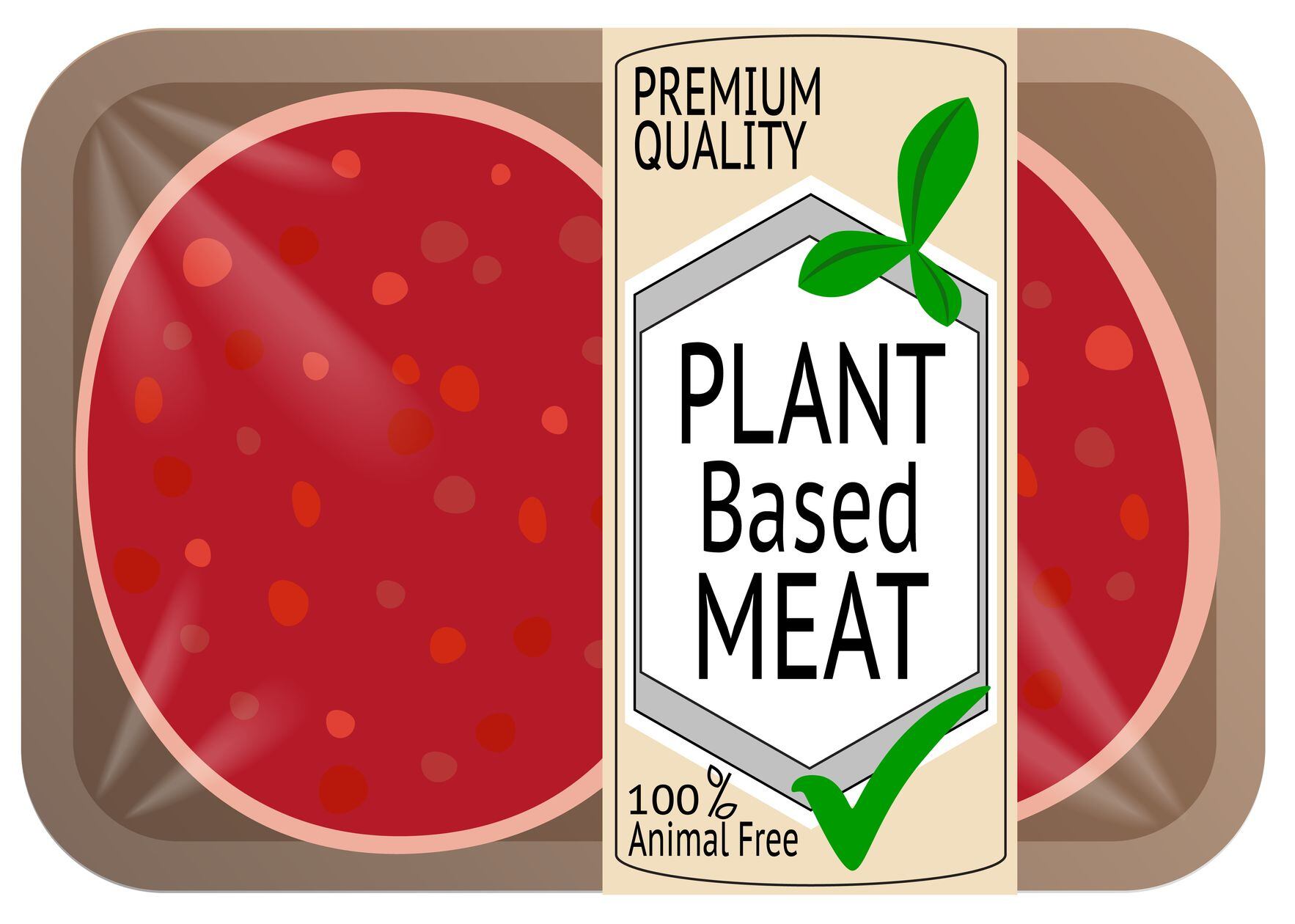
According to 210 Analytics, which analyses IRI data in measured US retail channels, growth in the refrigerated plant-based meat market has continued to slow: "January 2022 picked up where 2021 left off with some continued pressure on the sales of refrigerated plant-based meat alternatives. The five January weeks reached $45m in sales, down 3.7% versus year ago. For the latest 52 weeks ending January 30, 2022, sales were down -1.3% year-on-year.
"Pound sales in January 2022 reached 5.7 million, which was down 3.8%. The latest 52-week view was also down, at -2.2% versus year ago."
However, frozen meat, poultry and seafood alternatives dollar sales were up 10.6% year-on-year in January, boosted by inflation, while units and volume were down year-on-year.



